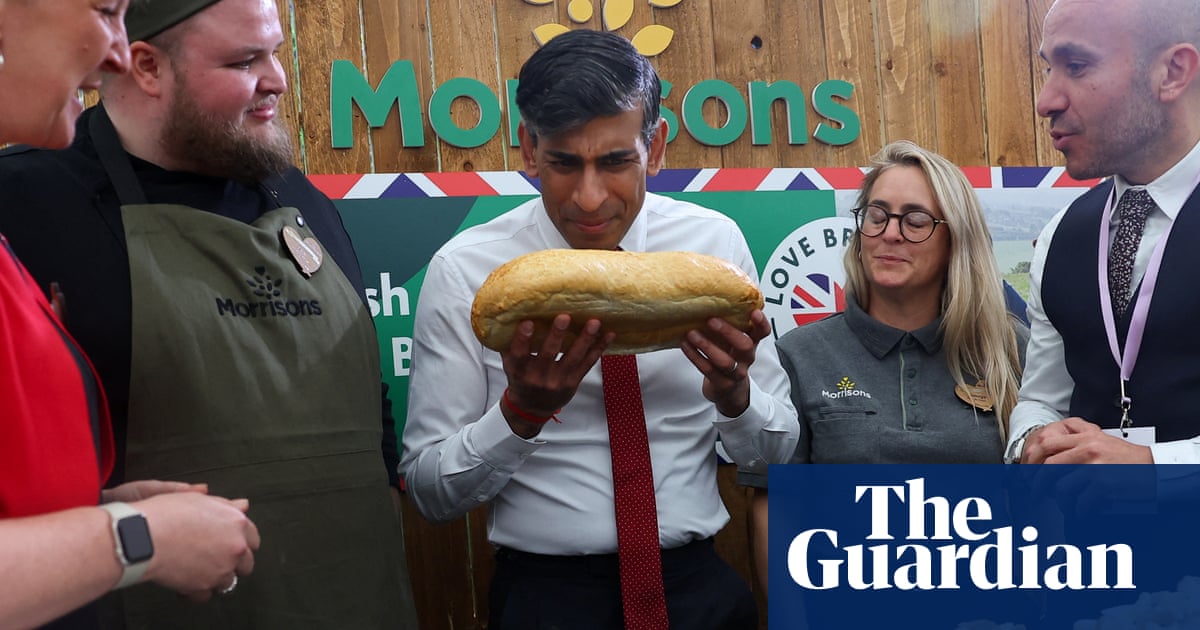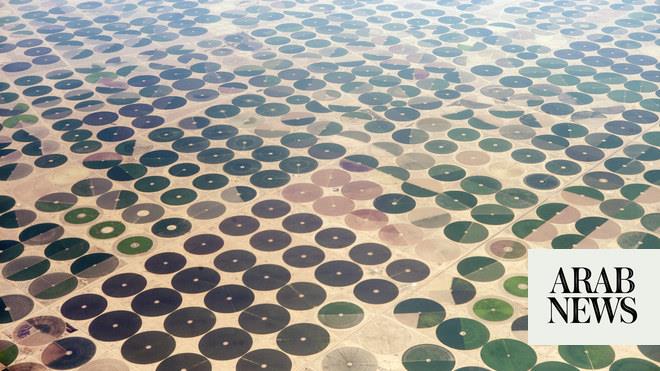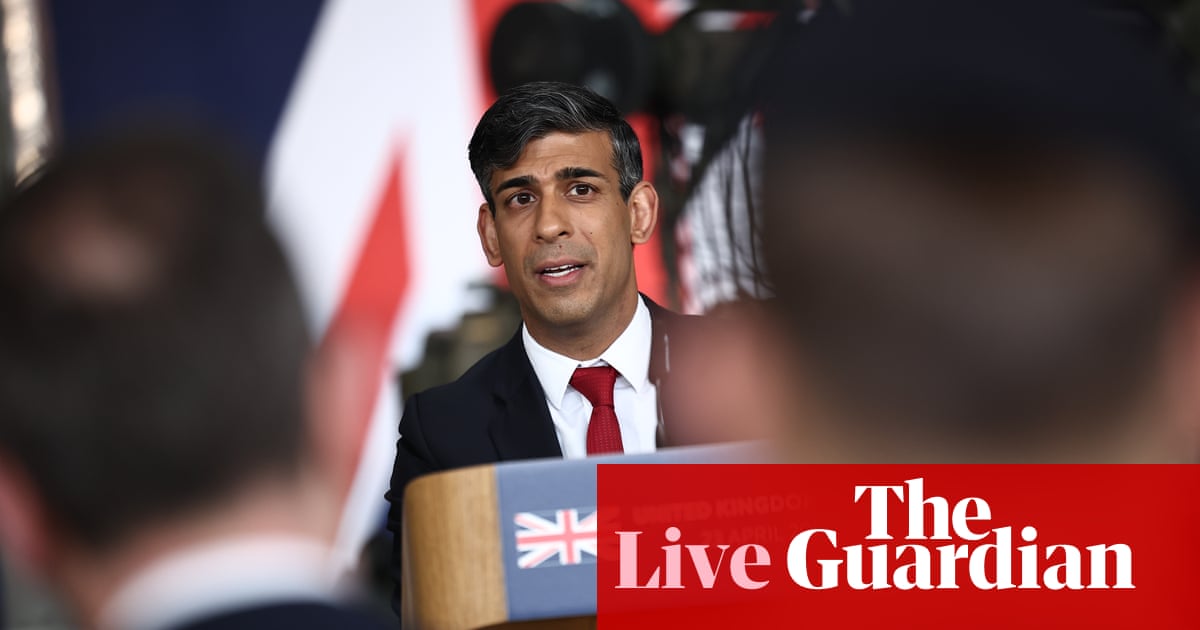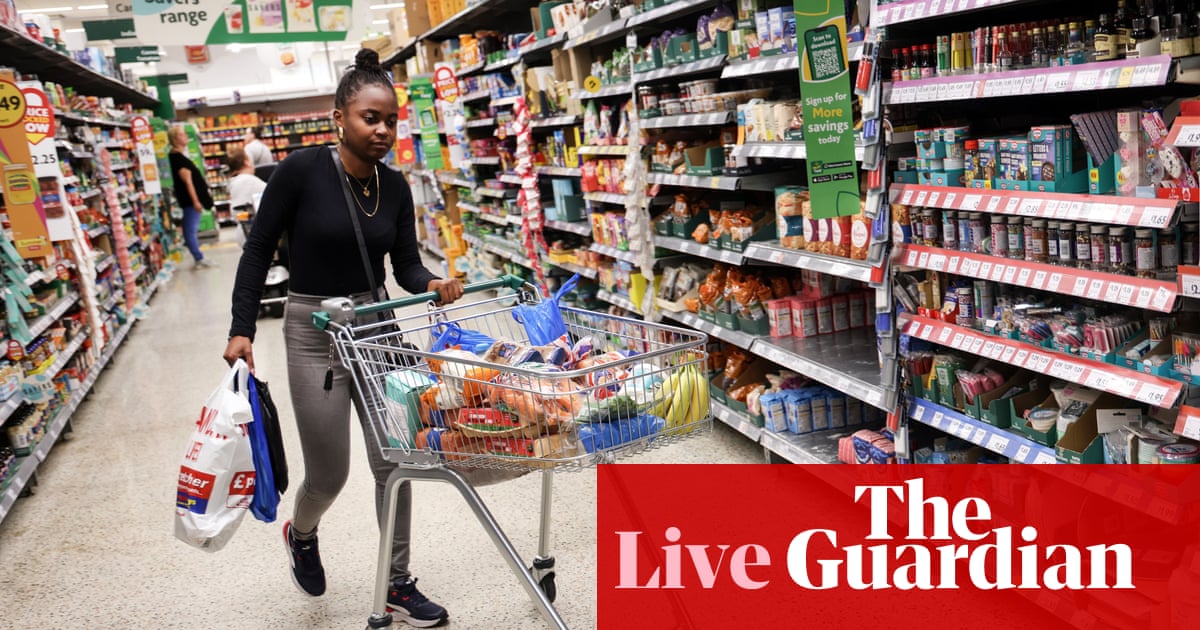
Rishi Sunak will launch his food security index to farmers on Tuesday, as experts predict extreme weather this year could cut UK self-sufficiency by 8%.
The prime minister is hosting a farm to fork summit at Downing Street and will say: “I know for many farmers the impact of adverse weather in recent months has made working the land even harder, but my message is clear, our support for you is unwavering and we will be with you every step of the way.”
Farmer confidence is at its lowest since records began, according to a survey by the National Farmers’ Union (NFU) that has been running since 2010. Eighty-two per cent of respondents said their farm businesses had suffered fairly negative or very negative impacts from the recent extreme floods.
Farm business profitability has also fallen, with 65% of respondents saying their profits are declining or their business may not survive. A survey by the Riverford Organic Farmers vegetable box company also found that half of British fruit and vegetable growers think they may go out of business within a year.
Estimates from the non-profit Energy and Climate Intelligence Unit (ECIU) show that the projected reduction in key arable crops as a result of lower crop area and poor yields will reduce UK self-sufficiency across all farming sectors by 8% when measured by volume. According to the analysis, this is a decline from an average of 86% between 2018 and 2022 to 78% this year.
The UK could become dependent on foreign imports for about a third of its wheat, with wheat self-sufficiency estimated to decline from 92% in the same period to 68%.
Tom Lancaster, a land analyst at ECIU, called for more government support to help with these extremes, which are becoming more likely because of climate breakdown.
“In 2021, the government warned that climate change was the biggest medium- to long-term threat to our food security,” he said. “This analysis suggests that it is the biggest risk now, not at some far-off point in the future.”
Farming bosses have previously hit out at the government for failing to provide support to flooded farms. Farmers whose entire cropping land was submerged recently found they were ineligible for a government flooding hardship fund because their farms were too far from a major river.
The president of the Country Land and Business Association (CLA), Victoria Vyvyan, said: “The public expect greater self-sufficiency in fruit and vegetables and farmers can provide it, but the government must ensure its plan is ambitious and workable.
“We call on the government to go a step further by developing a robust and bold plan for the rural economy as a whole. The rural economy is 19% less productive than the national average, but closing that gap would add £43bn to national GVA [gross value added].”
Sunak’s food security index will measure how much of the food we consume has been produced domestically, based on government data. The analysis shows the UK produces the equivalent of 17% of the fruit and 55% of the vegetables that end up on British plates, significantly lagging behind meat, dairy and grains.
Sunak has also announced a replacement for the EU horticulture resilience scheme, aiming to double the amount of funding given to horticulture businesses compared with the current scheme, taking it to £80m a year. This funding will help businesses get technology to help with picking fruit and vegetables after seasonal worker numbers fell significantly post-Brexit. Many farmers are sceptical of this technology, which is not yet ready to pick many types of fruit and vegetables, and have asked instead for more foreign workers to be allowed into the country.
Steve Reed, the shadow environment secretary, said of Sunak’s farming announcement: “After 14 years of Tory failure, our farmers are at breaking point.
“The Conservative government has stood idly by as farmers – including our great fruit and veg growers – have been devastated by flooding, skyrocketing energy prices and undermined by dodgy Tory trade deals. As a result, thousands are being forced out of business.”
The environment secretary, Steve Barclay, said: “This announcement will turbocharge the growth of our horticultural sector supporting the building of cutting-edge glasshouses and innovative farming techniques to put British fruit and vegetables on our plates all-year round.”
Alec Taylor, the head of production policy at WWF, said: “The summit would surely have benefited from the specialist knowledge of environmental organisations who have not received an invite yet again. Instead of focusing on arbitrary production targets, this is a chance to deliver for the nutritional security of our nation, where our precious land and climate are protected and restored, where farmers are supported to increase resilience and producing high-quality nutritionally diverse food, and where people are supported to access and afford it.”











